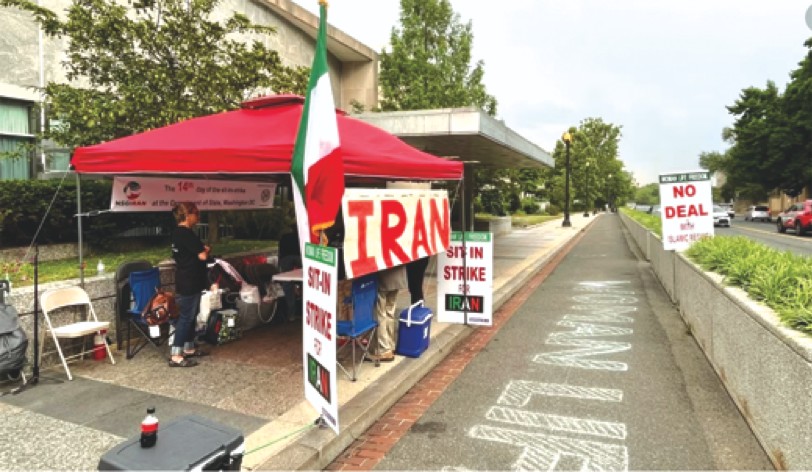September 15, 2023
A former Texas lawmaker, influenced by the news of former President Jimmy Carter entering hospice care, has come forward to reveal that there was, in fact, a secret GOP effort in 1980 to prevent Iran from releasing the 52 Americans hostages until after that year’s presidential election.

Connally, originally a Democrat, had by that point switched to the GOP. He is best known outside Texas for being the other person seriously wounded during the assassination of President John F. Kennedy in 1963.
The hostage crisis, which began November 4, 1979, and lasted 444 days, was an open political wound for Carter, who went on to lose his re-election bid to Reagan. After Iran released the hostages on Reagan’s Inauguration Day, there were immediate suspicions among Democrats that the Reagan team had somehow sabotaged the Carter Administration’s efforts in order to deny Carter a late-campaign political win which Reagan advisers famously dubbed a potential “October surprise.”
The most prominent theories, like the one put forward by former Carter national security aide Gary Sick in the early 1990s, alleged that William Casey, Reagan’s campaign chairman who went on to become the director of the CIA under Reagan, had orchestrated the sabotage and made a deal with Iran. But, as the Times notes, subsequent congressional investigations never turned up proof. Those investigations never involved Connally, however.
Barnes, a Democrat then and now and who was once the speaker of the Texas House of Representatives, told the Times that there was no doubt in his mind that the purpose of Connally’s trip was to get a message to Iran. He also said that they communicated with the Reagan team during the trip, and that after they returned to the US, Connally who wanted to be Reagan’s Secretary of State briefed Casey on the trip.
Barnes said he was certain the point of Connally’s trip was to get a message to the Iranians to hold the hostages until after the election. “I’ll go to my grave believing that it was the purpose of the trip,” he said. “It wasn’t freelancing because Casey was so interested in hearing as soon as we got back to the United States.” Casey, he added, wanted to know whether the Iranians “were going to hold the hostages.”
The Times report stresses that there is no evidence Reagan was aware of the effort, or that Casey directed it, but Barnes’s admission nonetheless provides compelling evidence that Reagan operatives or, at the very least, Connally did in fact conspire against Carter and US foreign policy for political gain, and may have prevented an earlier release for the hostages.
Connally and Barnes traveled to the region on a Gulfstream jet owned by Superior Oil. Only when they sat down with the first Arab leader did Barnes learn what Connally was up to, he said. Connally said, “‘Look, Ronald Reagan’s going to be elected president and you need to get the word to Iran that they’re going to make a better deal with Reagan than they are Carter,’” Barnes recalled. “He said, ‘It would be very smart for you to pass the word to the Iranians to wait until after this general election is over.’ And boy, I tell you, I’m sitting there and I heard it and so now it dawns on me, I realize why we’re there.”
Barnes identified four living people he said he had confided in over the years: Mark K. Updegrove, president of the LBJ Foundation; Tom Johnson, a former aide to Lyndon Johnson (but no relation) who later became publisher of the Los Angeles Times and president of CNN; Larry Temple, a former aide to Connally and Lyndon Johnson; and H.W. Brands, a University of Texas historian.
The Times said all four of them confirmed in recent days that Barnes shared the story with them years ago. “As far as I know, Ben never has lied to me,” Tom Johnson said, a sentiment the others echoed. Brands included three paragraphs about Barnes’s recollections in a 2015 biography of Reagan, but the account generated little public notice at the time.
“History needs to know that this happened,” Barnes explained to the Times, “I think it’s so significant and I guess knowing that the end is near for President Carter put it on my mind, more and more and more. I just feel like we’ve got to get it down some way.” Barnes said he had kept the details of the trip secret because he didn’t “want to look like Benedict Arnold to the Democratic Party.” Casey and Connally are no longer alive to comment on Barnes’s bombshell, but the Times confirmed Barnes accompanied Connally on a July 1980 trip to six countries in the Middle East Jordan, Syria, Lebanon, Saudi Arabia, Egypt and Israel and Barnes said Connally made the same appeal in every country save Israel.
